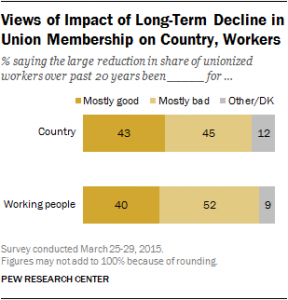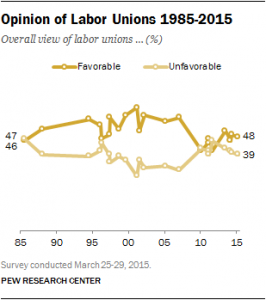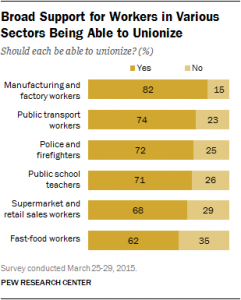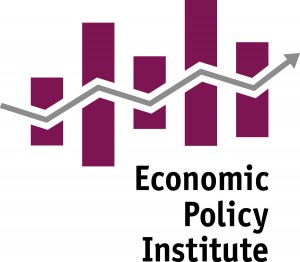The latest national survey by the Pew Research Center focuses on public view of unions and the role that unions and labor play in the workforce. While the public expresses mixed views of unions overall, majorities of Americans say many different types of employees in specific sectors should be able to unionize. Among the six sectors tested in the survey, support for workers’ ability to form a union is highest for factory and manufacturing workers: 82% say these workers should be able to unionize, while just 15% say they should not be able. Support for the ability of employees to unionize spans both public and private sectors: Seven-in-ten or more say public transportation workers (74%), police and firefighters (72%), and public school teachers (71%) should be able to unionize. For private sector workers in supermarkets and retail sales, a comparable 68% say these workers should be able to unionize.




